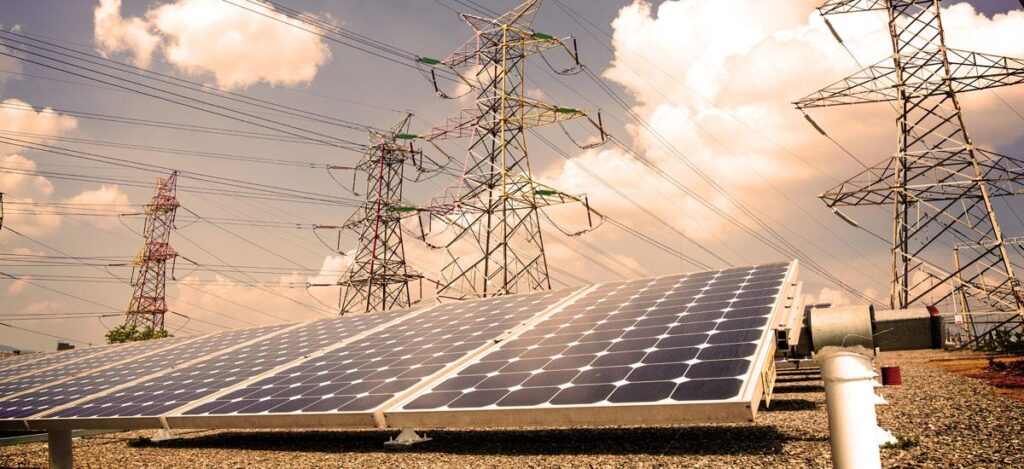
The need for sustainable energy solutions has never been stronger, especially when environmental issues are becoming topics of discussion on a global scale. With its abundance and renewability, solar energy presents a viable solution to our energy needs while causing the least environmental impact. Solar panels serve the environment in various ways by utilizing the sun’s power, including lowering greenhouse gas emissions and protecting ecosystems. This article will examine the environmental benefits of solar panels and offer helpful advice on switching to solar energy. Let’s explore the world of solar energy and learn how it can benefit the environment.
Solar energy is a renewable energy source utilizing the sun’s power. Direct current (DC) is created by photovoltaic (PV) panels, which employ semiconductors to collect sunlight and convert it into energy. Alternating current (AC), used in homes and businesses, is converted from direct current.
The sun is a vital energy source that has only recently been harnessed. It provides an abundance of potential resources for power generation that is sustainable, clean, and emission-free without releasing greenhouse gases into the atmosphere. Recent research has demonstrated that solar energy can be captured, stored, and used globally as a competitive alternative to conventional energy sources. As more people become aware of the need for environmentally friendly energy sources, the importance of solar energy has increased dramatically.
Photovoltaic systems need huge areas for energy generation to generate power at utility-scale levels. The facility, therefore, affects how land is used and may affect how wilderness and recreational areas are used. As energy systems impact nations through material discovery, extraction, manufacturing, and disposal, the energy footprint may increase further. Although certain applications may be highly spectacular, other uses may involve energy-intensive processes that need a lot of energy and time to complete before they are destroyed. Therefore, the modifications are permanent.
A significant area must clear and leveled to build a solar power system, which causes soil compaction, altered irrigation, and increased erosion. Central tower systems require water for cooling, but rising water demand strains already-scarce water supplies. It may cause chemicals to leak from the building, contaminating nearby soil and groundwater surfaces. It is an issue in dry areas. Building solar power facilities can endanger air quality, just like any significant industrial expansion. These dangers include the accidental spread of soil-borne diseases, which increases airborne particulate matter and contaminates water storage facilities.
Certain individuals argue that the latest technologies, especially thin-film panels, have been developed using hazardous metals such as cadmium telluride. While it is accurate that these harmful materials are utilized in producing solar panels, they are likewise present in coal and oil and emitted during their combustion. Furthermore, coal-based power plants discharge up to 300 times more dangerous pollutants than manufacturers of solar panels, leading to a pollution level that is 300 times greater.
Solar energy has many positive environmental impacts and is a clean, sustainable power source. Below, we’ll look more closely at the advantages solar panels provide for the environment.
The future of solar energy is being shaped by several exciting concepts as the sector continues to develop and innovate. Developing new technologies, including energy storage systems, smart grid systems, and enhanced solar panels, is one of the most prominent developments in the solar energy sector.
The need for renewable energy sources has also risen as people become more aware of solar energy’s financial and environmental advantages. Therefore, there has been a rise in investment in the solar energy sector, spurring expansion and innovation. A
dditionally, more towns and companies are investing in solar energy systems due to the trend toward decentralized energy generation. By doing so, dependency on centralized energy networks makes them vulnerable to blackouts, price fluctuation decreases, and energy independence increases.
The promise of clean, renewable electricity is not just a theory; it is a real force for change as we explore how solar energy impacts the environment. The guardians of this force, sustaining the solar ecosystem for a sustainable future, are solar panel services.
At “Just Doing Solar,” we acknowledge that solar panel services are essential in creating a sustainably conscientious future. Our dedication to solar system care and upkeep goes beyond simple installations; we ensure that every panel protects the environment and energy economy.
With the vital interaction of solar panel services, let’s capture sunlight to maintain the planet and create a better future together.
